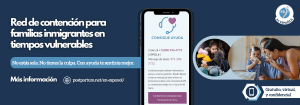By Samantha Reaves, MA, PMH-C | Postpartum Support International
Adam Angel founded Dads With Wisdom, a network for men on their journey through fatherhood. Soon-to-be dads, first-time dads, and experienced dads all have a place to connect. Dads With Wisdom (DWW) builds on men’s knowledge, skills, and instincts of fatherhood by placing men into teams of potential or current fathers where they can connect, share, and receive support from each other and DWW staff.

“I have become more confident as a parent and feel more able to ‘take charge’ in those moments of dysregulation with my children. I also feel much more equipped to notice when I am becoming dysregulated myself.” -Alex, Participant of the Dads 2.0 group
Please tell us about yourself and the work that you do.
I am a father of an 8-year-old and a 5-year-old. I run different groups for dads that provide a range of support, including information, space for peer dialogue, and deeper dive introspection. I came to this work with fathers after taking care of my infant during the early days of COVID, and I guessed many other fathers might be interested in group support that I would have liked for myself.
Many fathers work jobs that don’t afford them paternity leave, or a very limited amount. For those who do have significant time offered to them, it is often the culture of the fatherhood in a geographic area and the culture of the company that can have the biggest impact on expectations about the amount of time to take in paternity leave. Even within an organization, your position status can determine if you are actually expected to use the time or if there will be criticism and judgment for taking the time with your children.
Much of the pressure, though, can be internal for the individual father. We create standards for ourselves that state we are wrong for taking time with our children. Even when the external pressure exists, we of course have a choice to challenge the status quo and lead by example, allowing other men to do the same.
During our sessions, the group supports each other by discussing what is coming up for them as they make these decisions. Sometimes, outside of all the logistics, there are mixed feelings of missing their old life, pressures of performance, or sadness about returning to work. There may also be felt pressure to support their family while balancing work life, and some notice a lack of desire to chase after work-based dreams now that new meaning has come from family life. There has been a change for many fathers happening in both policy and culture in recent years, and it’s exciting to be a part of it.
Dads may not feel prioritized during the perinatal period. What advice do you have for partners and families to make sure Dad is supported?
Dads are not prioritized, and maybe they shouldn’t be prioritized per se, but they should be recognized and supported. At each stage of support, there should be a sincere check-in with the father. What would you most like support in? What would you like to get experience with? What information would be helpful to know about? What kind of community would you like me to connect you to? For all of these, we can offer answers if the dad is unsure what he even should be asking for. An example would be: Feelings around breastfeeding and its challenges are central to a mom’s mental health. When breastfeeding is taking place, you can engage in the other necessary work, but it is important to set up a pleasant environment for your partner, to check on your partner, and at times, share that time together so that you can connect with the baby in this way, too. Sometimes, the doing is supporting your partner and yourself emotionally.
This is likely the biggest change in a man’s life, and many have not prepared from a psychological, coparent relational, or broader social aspect. It is for this very reason that I recently decided to open up a new men’s group for men who are considering children, in the process of trying to conceive, utilizing fertility treatments, or expecting a child.
Though vitally important, the coparenting relationship can be extremely challenging to navigate in the perinatal period. What insights can you share, and what issues do you “see all the time” in your work?
This is probably the most asked-for need from fathers. Especially for new fathers who are just beginning the adjustment process to their lives and their relationships with their partners. The coparenting relationship is the ultimate group project. Everyone knows the old adages about communication, but I think as much emphasis should be placed on self-reflection and separate community support for each coparent.
The importance of getting under one parenting umbrella, which will allow for each parent to explore and create their own parenting style without invalidating or undermining the broader framework, is key. This is an ongoing process, and new situations arise and challenge the framework. These include events like children not sleeping, the impact of grandparents and friends, and children making more and more demands as they grow. Revisiting this framework and recognizing each other’s individual strengths and areas of challenge are important. As we do so, taking the time to know oneself and know your partner’s old wounds that impact how they get caught in old strategies that undermine what they actually want is central to success.
Tell us more about the leagues within Dads With Wisdom. Are the groups structured to cover specific topics, or is the conversation more relaxed?
As I have grown in how I facilitate the groups, they have become more relaxed. I found that information is important 10% of the time. The most important information comes out regardless, but the real desire is to be heard, understood, and supported. These come out in all the groups. The Dads 2.0 groups are the most in-depth groups as they are therapy groups, but the others can get deeper, but are meant to be peer support.
At PSI, we understand that it is not only mothers who are affected by perinatal mental health disorders. Can you speak to the importance of including fathers in the conversation and the effect that fathers’ mental and emotional well-being has on their children and relationships?
Fathers’ mental well-being has become a more regular topic in perinatal spaces. In the past, when it was recognized, it was only recognized in relation to how a father’s mental health impacted the family. These days, more is being studied and written that recognizes the father’s mental health as an end in itself. This recognition is allowing for fathers to meet their own needs, and in doing so, meet the needs of the couple and the child.
By recognizing the presentation and the needs of everyone in the family, the family can succeed in its goals. Many men may present their mental health challenges by discussing their challenges as stress and rely on unhealthy strategies that result in them acting out their anger or frustration on other members of the family. They may also separate themselves, criticize themselves or utilize drugs as a form of disconnecting or acting in on themselves. These strategies are not just for men but correlate with common themes of masked male depression. Finding ways to regularly meet and discuss the needs of each partner in the coparenting relationship is key, as is for practitioners to recognize the enormous life change and its impact on both parents.
Perinatal Mental Health: Signs, Symptoms, and Treatment
Postpartum Planning Class
Help for Dads









